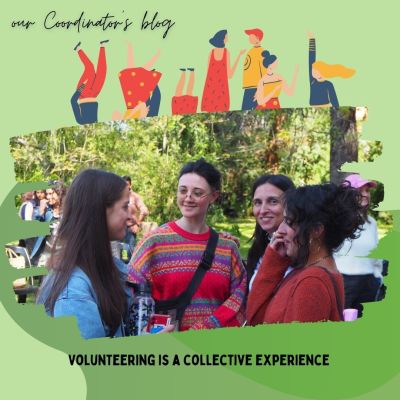It is common knowledge how both the categories are reserved a place in the international parade of cynical stereotypes on travelling. The tourists are alleged with superficiality and irresponsible exploitation of the local sources. Nonetheless, volunteers are accused of futile idealism, and inane attempts of cleansing their 1st world souls from colonial legacies.
At the light of these considerations, a fair dilemma might arise. Who is the real traveller? Regardless of the attempts of establishing parameters for responsible travelling, the answer still remains subjective. Nevertheless, a number of analogies and differences can be identified in the two trends, and their analysis can be of much interest.
In common
OUTSIDERS: both the volunteer and the tourist enter the foreign country as outsiders. They both undergo the barriers of ethnicity and language. Whether it is to fix their Jacuzzi or to communicate with orphans, they are equally concerned with the challenges of communicating and interacting.
PURPOSEFULNESS: the tourist and the volunteer were both driven by an interest to the place they visit. Regardless of whether it is to relax or to boost up their CV. They are moved by a certain degree of curiosity, and want to get to know the local culture as much as they can.
Things that differ
TIME: “What you give is what you take”. The return date on the traveller’s ticket says a lot about his intentions. The volunteer offers the foreigner a substantial bit of his own life. A person’s willingness to spend several months in a country shows his disposition towards it. And the gesture is not left unreturned. In fact, any foreigner is inclined to dedicate more time and attention to someone who, in turn, is offering his own.
A tourist departs with a less selfless mentality. In the holiday format, usually shorter, the traveller optimizes his time towards the fulfillment of his desires. The tourist is bound to compress sightseeing, museums, and traditional meals in a short time. He lacks the time to engage in an exchange on the same level.In terms of relationships, if a volunteer shares, a tourist takes.
RESPONSIBILITY: A volunteer departs to undertake an unpaid work experience for the benefit of the community. The purpose of the volunteer’s travel entails a notion from which tourists usually are escaping: responsibility. The volunteer is an employed unrewarded traveller. His role implies responsibility.
The tourist travels for the opposite reason. He seeks for relief from responsibilities, from his daily duties. His purpose is leisure. Although touristic leisure can imply cultural interest, it is a non-committed type of interest, given that it is freed from any type of responsibility.
CULTURE-MERGING: Time and responsibility determine the culture merging of the traveller. A volunteer is in a position of great exposure. He has the same routine as a local. On the human level, the relationships started by the volunteer are deeper and more lasting than those engaged by the tourist. Most importantly, the volunteering experience is highly didactic. Investing more time and more commitment, the volunteer learns more about himself, and about the place he is discovering.
The tourist only engages with the local culture according to the unwritten rules of the local-tourist relationship. The sole contribution brought by a tourist to a community is the money he spends. As he does not place himself on the same level of the local, a communication between even is not possible. There is no exchange in his encounter of the foreign, rather a purchase of what the place and the people have to offer. The tourist cannot share a bit of himself with the environment. Rather than culture merging, tourists practice culture window-shopping.
“Tourists keep memories in their heads. Volunteers keep memories in their hearts.” The two categories are different types of travellers, whose paths often intertwine and whose inclinations switch from one side to the other. As far as the real traveller is concerned, the dilemma remains unsolved, and one cannot but ponder and embrace what suits best one’s own notion of journey.





